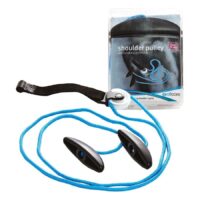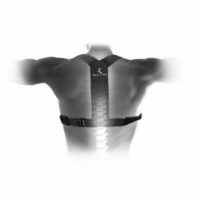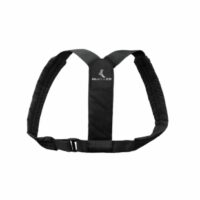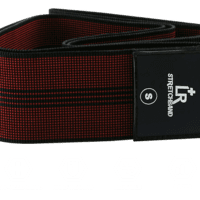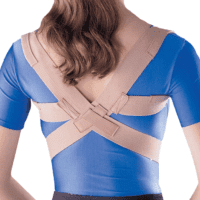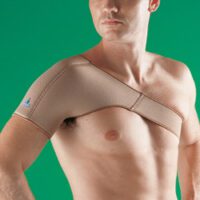Frozen Shoulder (Adhesive Capsulitis)
Article by J. Miller, S.Armfield

Frozen Shoulder
A Physiotherapist’s Insight
What is Frozen Shoulder?
Frozen shoulder, medically known as adhesive capsulitis, is a condition causing significant shoulder pain and affects between 2% and 5% of people, mainly those aged 40 to 60. It’s more common in women, affecting around 70% of those diagnosed. This condition differs from rotator cuff injuries by presenting a unique pattern of symptoms: severe pain, loss of function, and eventual stiffness. It involves inflammation and fibrotic adhesions in the shoulder capsule, restricting movement.
Recent studies suggest various potential triggers for frozen shoulder, including health conditions like diabetes and thyroid disorders. For instance, diabetics have a 10 to 38% chance of developing this condition. Post-surgical patients are also at risk, highlighting the need for careful post-operative care.
What are the 3 Stages of Frozen Shoulder?
Frozen shoulder progresses through three stages:
- Freezing Phase: Lasting 3 to 9 months, this stage causes pain and reduced movement. Aggressive treatments should be avoided at this time.
- Frozen Phase: This 9 to 15-month period involves increased stiffness. Transitioning between the first and second phases can be particularly painful.
- Thawing Phase: Over 15 to 24 months, movement gradually returns. Tailored physiotherapy interventions are most beneficial in this stage, focusing on pain relief initially and then restoring range of motion.
Diagnosing Frozen Shoulder
Diagnosis involves a clinical assessment where difficulties in reaching overhead, throwing, or moving the arm behind the back are noted. A specific capsular pattern of stiffness is often present. Imaging, such as X-rays or MRI, aids in confirming the diagnosis.
Risk Factors
People between 40 to 60 years old are at higher risk, with conditions like shoulder trauma, surgery, diabetes, inflammatory and autoimmune diseases, and thyroid disorders increasing susceptibility. Notably, 20% of individuals with frozen shoulder in one arm may develop it in the other.

How Do You Get Rid of a Frozen Shoulder?
Treatment varies by stage:
- Freezing Stage: Focuses on pain relief and ruling out other causes. Early intracapsular hydrocortisone injections can be beneficial.
- Frozen Stage: Gentle mobilisation, muscle release, acupuncture, dry needling, and exercises are key for regaining range and strength. Overly aggressive activities should be avoided.
- Thawing Stage: Physiotherapy becomes more effective with mobilisations, stretches, and exercises tailored to restore full movement.
Surgery, often a last resort, can improve stiffness by up to 80% when combined with physiotherapy.
Prevention Strategies
Prevention centres on avoiding prolonged shoulder inactivity, particularly after surgery or injury. Managing underlying health conditions like diabetes and thyroid disorders is also crucial.
Conclusion and Call to Action
Frozen shoulder, while challenging, can be effectively managed with the right approach. If you’re experiencing symptoms or fall into a higher risk category, consult a professional physiotherapist for tailored advice and treatment.
Rochedale - Call 38410277
Book Online: RochedaleSalisbury - Call 32751044
Book Online: SalisburySandgate - Call 32691122
Book Online: Sandgate- Shoulder Pain & Injury
- Readers will find comprehensive information on common causes of shoulder pain and injury, offering insights into how frozen shoulder fits into the broader context of shoulder issues.
- Rotator Cuff Injuries
- This article explains rotator cuff injuries, differentiating them from frozen shoulder, which is crucial for readers to understand the specific nature of their condition.
- Physiotherapy for Shoulder Pain
- Discover the benefits of physiotherapy in treating shoulder pain, including techniques that can also apply to managing frozen shoulder symptoms.
- Diabetes and Musculoskeletal Health
- Given the link between diabetes and frozen shoulder, this article can provide valuable information on managing diabetes to potentially reduce the risk of developing frozen shoulder.
- Post-Surgical Rehabilitation
- Learn about the importance of post-surgical care for shoulder surgeries, which can help prevent complications like frozen shoulder.
- Acupuncture for Pain Relief
- This article discusses how acupuncture can be used as a pain relief method, including for conditions like frozen shoulder.




























